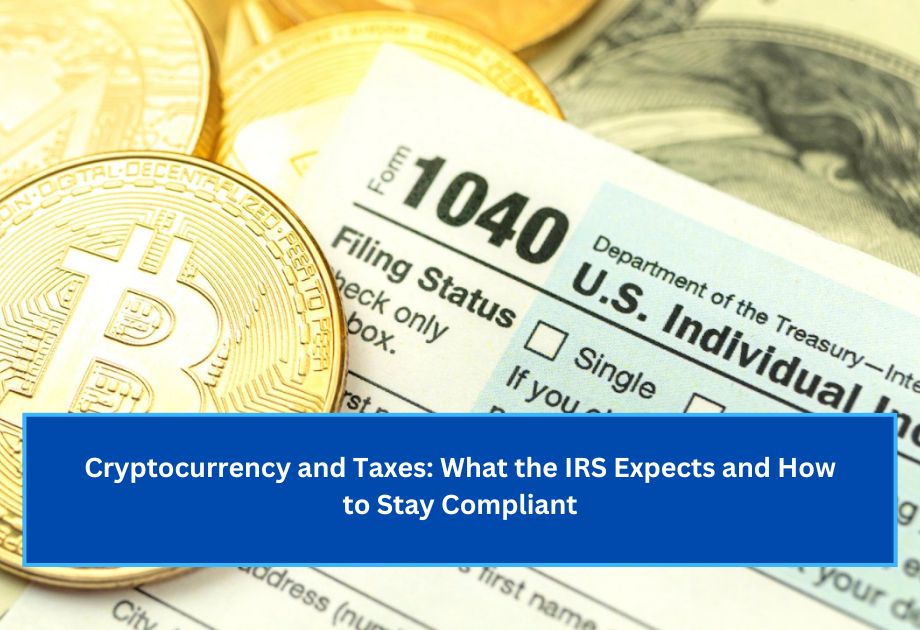Cryptocurrencies have become a popular way to trade and store value, but they come with tax responsibilities. The IRS treats these digital assets as property, making it essential for crypto users to understand tax rules to avoid penalties. Let’s break down what you need to know.
IRS Classification of Cryptocurrencies
The IRS has classified cryptocurrencies as property since 2014. This means that all tax rules that apply to property also apply to crypto transactions. Whether you sell, exchange, or use cryptocurrencies for purchases, any resulting gains or losses must be reported.
Taxable Cryptocurrency Transactions
Here are the common crypto transactions that the IRS considers taxable:
1. Selling Cryptocurrencies
- What happens? When you sell crypto for fiat (like USD), any gain or loss is taxable.
- Example: If you bought Bitcoin for $10,000 and sold it for $15,000, the $5,000 profit is taxable.
2. Exchanging Cryptocurrencies
- What happens? Trading one crypto (e.g., Bitcoin) for another (e.g., Ethereum) is a taxable event.
- Example: If your traded Bitcoin increases in value before the exchange, the gain is taxed.
3. Using Cryptocurrencies for Purchases
- What happens? Paying for goods or services with crypto is considered a sale.
- Example: If you use Ethereum to buy a laptop, any gain or loss compared to the cost basis is taxable.
4. Receiving Cryptocurrencies as Income
- What happens? If you’re paid in crypto, it’s considered regular income.
- Example: If you’re paid 0.1 Bitcoin worth $5,000 for a job, that amount is taxable.
5. Mining and Staking Rewards
- What happens? Cryptocurrency earned through mining or staking is taxable as income.
- Example: If you mine 1 Ethereum when it’s worth $1,800, that amount is considered taxable income.
Reporting Cryptocurrency Transactions
Key IRS Forms:
- Form 8949: Reports sales and exchanges, listing dates, cost basis, and proceeds.
- Schedule D (Form 1040): Summarizes overall gains and losses.
- Form 1040: Asks about your involvement in virtual currency transactions.
Common Cryptocurrency Transactions and Tax Implications
| Transaction Type | Description | Tax Implication | Reporting Form | Notes |
|---|---|---|---|---|
| Selling Cryptocurrency | Selling crypto for fiat currency | Capital gain or loss based on cost basis and sale price | Form 8949 | Report total gains/losses on Schedule D |
| Exchanging Cryptocurrency | Trading one crypto for another | Capital gain or loss based on fair market value | Form 8949 | Each trade is treated as a separate taxable event. |
| Using for Purchases | Paying for goods or services with crypto | Capital gain or loss based on fair market value | Form 8949 | The fair market value is the USD price of the goods/services purchased. |
| Receiving as Income | Payment in crypto for services | Income based on the fair market value | Form 1040 | Could also be subject to self-employment tax if applicable. |
Conclusion
Cryptocurrencies may seem complicated when it comes to taxes, but staying compliant is crucial. By keeping detailed records, understanding which transactions are taxable, and using the proper IRS forms, you can avoid penalties and file your taxes accurately. Whether you’re selling, exchanging, or mining crypto, the key is to stay informed and organized.
FAQ’s
Do I pay taxes if I didn’t sell my cryptocurrency this year?
No. Taxes apply only if there’s a taxable event like selling, exchanging, or using cryptocurrency.
Can I deduct crypto losses on my taxes?
Yes, you can offset capital gains with losses and may even carry them forward to future years.
How do I find the cost basis of my cryptocurrency?
The cost basis is the amount you paid to acquire the crypto, including transaction fees.

